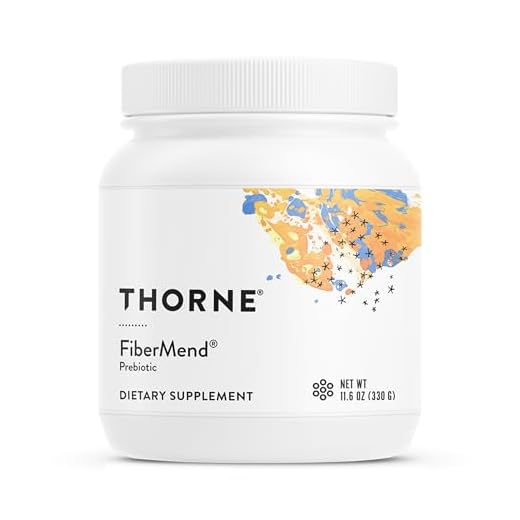



Consuming beverages with rich pigments, particularly those derived from grapes, can lead to noticeable changes in bowel movements. This phenomenon is often linked to the natural compounds found in these drinks, which may contribute to color alterations. If you observe darker fecal matter after indulging, it’s crucial to consider the ingredients and their effects on digestion.
For instance, tannins and certain antioxidants present in these drinks can interact with the digestive system, sometimes causing temporary shifts in the coloration of waste. It’s important to monitor your body’s reactions and maintain a balanced diet to mitigate any adverse effects. Should you experience persistent changes, consulting a healthcare professional is advisable to rule out underlying issues.
Pairing these drinks with lighter foods may also help ease digestion and balance any potential impacts. Keep in mind that hydration plays a key role in overall digestive health, so complement your diet with plenty of water to support regularity and comfort.
Red Beverage and Darkened Bowel Movements
It’s unlikely for this fermented grape beverage to lead to darkened bowel movements. The pigments in the liquid, particularly anthocyanins, may impart a reddish hue to the digestive process but do not typically result in a significant color change in excrement.
However, consumption of this libation can sometimes coincide with gastrointestinal changes due to various factors, including dietary habits and individual digestive health. High tannin levels and acidity can affect some individuals, leading to altered digestion, but not necessarily darkened results.
If you experience unusual color changes after enjoying this beverage, consider other dietary influences. Foods such as blackberries, beets, or iron supplements can also contribute to darkened results. Monitoring your intake can help identify the true cause.
Should you have ongoing concerns, consulting with a healthcare professional is advisable to rule out any underlying health issues. Awareness of your body’s reactions is key, and keeping a food diary may help track and identify potential triggers.
Understanding the Components of Red Wine and Their Effects on Digestion
Polyphenols, including tannins and anthocyanins, play a significant role in how fermented grape beverages interact with our digestive system. These compounds can influence gut flora and promote healthy digestion.
Here are some key components found in these beverages and their potential effects:
- Tannins: These compounds can contribute to astringency and may impact the digestive process by binding to proteins and inhibiting certain enzymes.
- Alcohol: Ethanol can alter gut motility and affect the absorption of nutrients. Moderate consumption is often recommended to minimize adverse effects.
- Acids: Organic acids present can stimulate gastric juices, promoting digestion but may also lead to discomfort in sensitive individuals.
- Resveratrol: This antioxidant has been linked to various health benefits and may support gut health by promoting a balanced microbiome.
Individual responses vary significantly based on personal health, dietary habits, and the specific type of fermented beverage consumed. It’s advisable to monitor how different varieties affect your body and adjust consumption accordingly.
Pairing foods with this beverage can also influence digestion. Foods rich in fiber, such as vegetables and whole grains, can enhance digestive health and balance the effects of the compounds found in fermented grape beverages.
For those with digestive sensitivities, exploring lighter varieties or lower alcohol options may provide a more enjoyable experience while minimizing any adverse effects.
Identifying the Causes of Dark Excrement Beyond Consumption of Fermented Grapes
Gastrointestinal bleeding often results in a darker appearance of excreta. This can occur from various sources, including ulcers in the stomach or intestines, esophageal varices, or hemorrhoids. If you notice a significant change in color, consulting a healthcare professional is crucial.
Another factor to consider is the intake of certain medications. Iron supplements and medications containing bismuth subsalicylate, commonly found in products like Pepto-Bismol, can lead to a darkening effect. Always check the labels of over-the-counter remedies to understand potential side effects on digestive health.
Dietary choices play a role as well. Foods rich in iron, such as spinach, black beans, and red meats, may contribute to a darker hue. Similarly, foods with dark pigments, such as blueberries or black licorice, can also influence color. Monitoring your diet can help identify if specific items correlate with noticeable changes.
Infections, both bacterial and viral, may also alter gastrointestinal function and appearance. Conditions like gastroenteritis or infections from Helicobacter pylori can lead to darkened excrement. Recognizing symptoms such as diarrhea, stomach cramps, or fever can guide you in seeking medical advice.
Lastly, keep in mind that certain medical conditions, such as liver disease or cancer, might lead to changes in color. While these instances are less common, being aware of your body’s signals is vital. If you experience persistent changes accompanied by other symptoms, seeking medical evaluation is recommended.
Examining the Role of Iron and Other Substances in Stool Color
Iron content in the diet often contributes to changes in fecal hue. High levels of iron, found in foods like red meat, leafy greens, and fortified cereals, can lead to darker excretions. If you consume substantial amounts of iron-rich foods, consider moderating your intake to avoid unexpected color alterations.
Additionally, certain supplements, particularly those containing iron, can influence the appearance of waste. If you’re taking such supplements, consult with a healthcare professional to assess the necessity and potential side effects.
Other substances, such as bismuth compounds in medications like Pepto-Bismol, can create a similar effect. It’s crucial to be aware of all medications and supplements being taken, as they can impact digestive processes and waste coloration.
For those curious about culinary practices, exploring various cooking methods can enhance iron absorption. For instance, learning how to cook lamb mince can provide a flavorful way to incorporate iron-rich ingredients into your meals.
Dietary fiber also plays a role in digestion. Insufficient fiber can lead to darker or harder stools, while adequate fiber helps maintain regularity and a balanced color. Incorporate a variety of fruits, vegetables, and whole grains into your meals for optimal digestive health.
When to Seek Medical Advice for Changes in Stool Appearance
Consult a healthcare professional immediately if you observe persistent darkened excrement lasting more than a couple of days, especially if accompanied by symptoms such as abdominal pain, nausea, or vomiting. These signs may indicate a serious underlying condition requiring prompt evaluation.
Key Indicators for Medical Attention
| Symptom | Action |
|---|---|
| Persistent dark excrement | Seek evaluation within 1-2 days |
| Abdominal pain | Contact a healthcare provider |
| Nausea or vomiting | Immediate medical attention |
| Accompanying weight loss | Schedule a consultation |
Blood in the digestive tract can also lead to altered color in waste. If you notice any reddish streaks, it’s essential to seek medical advice without delay. Timely intervention can be critical in diagnosing and treating potential health issues.
Additional Considerations
In addition to dietary factors, certain medications and supplements can influence the shade of excrement. If you’ve started a new regimen, inform your healthcare provider, as this information can aid in accurate diagnosis and treatment.
Tips for Moderation and Awareness While Enjoying Fine Beverages
Limit consumption to a moderate amount, typically one to two servings for most individuals. This helps maintain balance and reduces the risk of adverse effects.
- Stay hydrated by drinking water between servings. This not only aids in digestion but also helps mitigate the effects of alcohol.
- Pair with food to slow absorption. Foods high in fiber, like whole grains or vegetables, can enhance digestion and lessen potential discomfort.
- Choose high-quality options with lower sulfite levels, which may decrease the likelihood of digestive disturbances.
- Keep a log of what you consume and any physical responses. This can help identify personal triggers and inform future choices.
- Be mindful of other dietary habits. High iron or certain medications can interact with beverages, affecting digestion and stool color.
Observe your body’s reactions. If you notice consistent changes after enjoying these drinks, consider reducing your intake or consulting a healthcare professional.
Engage in conversations about your experiences. Sharing insights with friends or fellow enthusiasts can help you learn more and make informed decisions.
Explore different varieties and regions. Each option offers unique flavors and characteristics, leading to a richer appreciation without overindulgence.
FAQ:
Can drinking red wine cause my stool to appear black?
Yes, consuming red wine can lead to black stools in some individuals. This is mainly due to the presence of certain compounds in red wine, such as tannins and anthocyanins, which can darken the stool. Additionally, red wine can affect gut bacteria and digestion, potentially contributing to changes in stool color. However, it’s important to note that black stools may also indicate other health issues, such as gastrointestinal bleeding. If you notice persistent changes in your stool color, it’s advisable to consult a healthcare professional.
What should I do if I notice black stool after drinking red wine?
If you notice black stool after drinking red wine, it’s important to monitor the situation. Occasional black stools may not be a cause for concern, especially if you have consumed foods or drinks known to darken stool. However, if the black stool persists or is accompanied by other symptoms like abdominal pain, dizziness, or changes in bowel habits, seek medical advice immediately. A healthcare professional can help determine whether your symptoms are related to red wine consumption or a more serious condition requiring attention.









